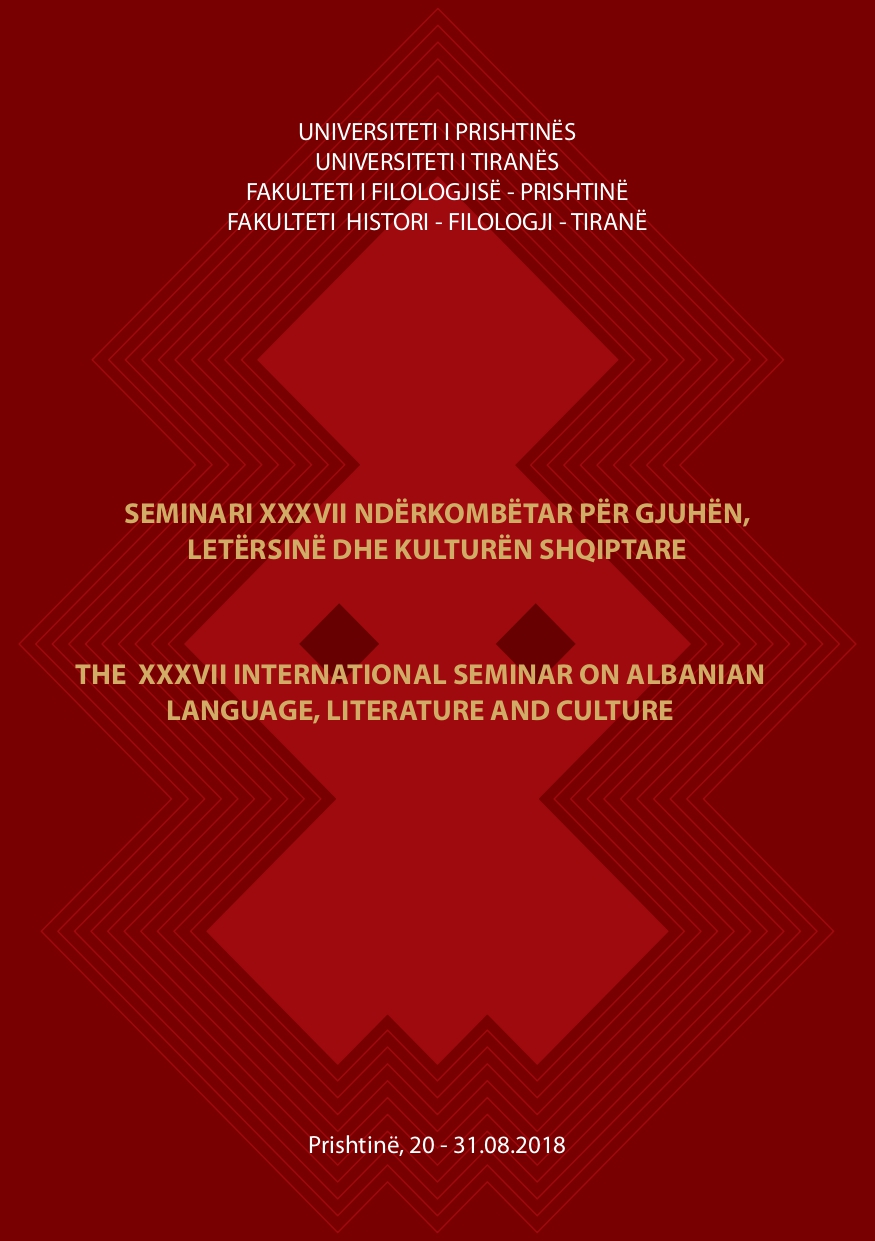Topika - Transformimet poetike e diskursive
Topic - Poetic and discursive transformations
Author(s): Anton BerishajSubject(s): Studies of Literature, Albanian Literature, Theory of Literature
Published by: Univeristeti i Prishtinës, Fakulteti i Filologjisë
Keywords: topic; discursive figure; narrative figure; institutionalized topics;
Summary/Abstract: With merging rhetoric and poetics (Barthes,2008,324) into medieval grammatica, topics from Aristotelian logical-dialectic organon is moved to the literature domain. If in the antique rhetoric system, topics was marked as the a cluster of different ideas, and also other formal elements in the shape of formulas (Curtius, 2013), from medieval times commonplaces represented not only institutionalized and stereotypical topics, respectively general semantical places inherited due to tradition, though used also as a corpus symbolicum, a grid in the foundation of the semiotic/poetic machine, as a configuration of generic sememas, which after medieval times went through continued poetic transformation. Topoi’s, as so, will be treated as discoursive/narrative figures, with a high symbolic condensation, as symbolic/thematic structures (archethemes and archetypes) that emerges as a gene of the sujet (plot)/text, and also as a ‘’aggregate’’ of the genre and compositional structures of a literary text. Topics, as a web of sintagmatic and paradigmatic units, determines the imaginary universe of Albanian literature from Barleti, Buzuku and Bogdani, to Camaj and Pashku. Furthermore, as a symbolic grid of memory of culture, it also functions as a archetipical substratum, respectively as a anthropologic structure of imagination (Gilbert Durand), as a ”series of symbolic images (which) runs vertically through the whole course of human history, or large (ireal) areas of it” (Lotman, 1990, 86), which constitutes a fundamental intertextual dimension of literary texts. The transformation of topics (i.e. topic mundus aversus/upside-down world) in the level of form of expression and especially the form of content (Hjelmslev,1980)- often determines the uniqueness of the author’s poetics or of a literary era.
Journal: Seminari Ndërkombëtar për Gjuhën, Letërsinë dhe Kulturën Shqiptare
- Issue Year: 2018
- Issue No: 37.2
- Page Range: 257 - 268
- Page Count: 12
- Language: Albanian

